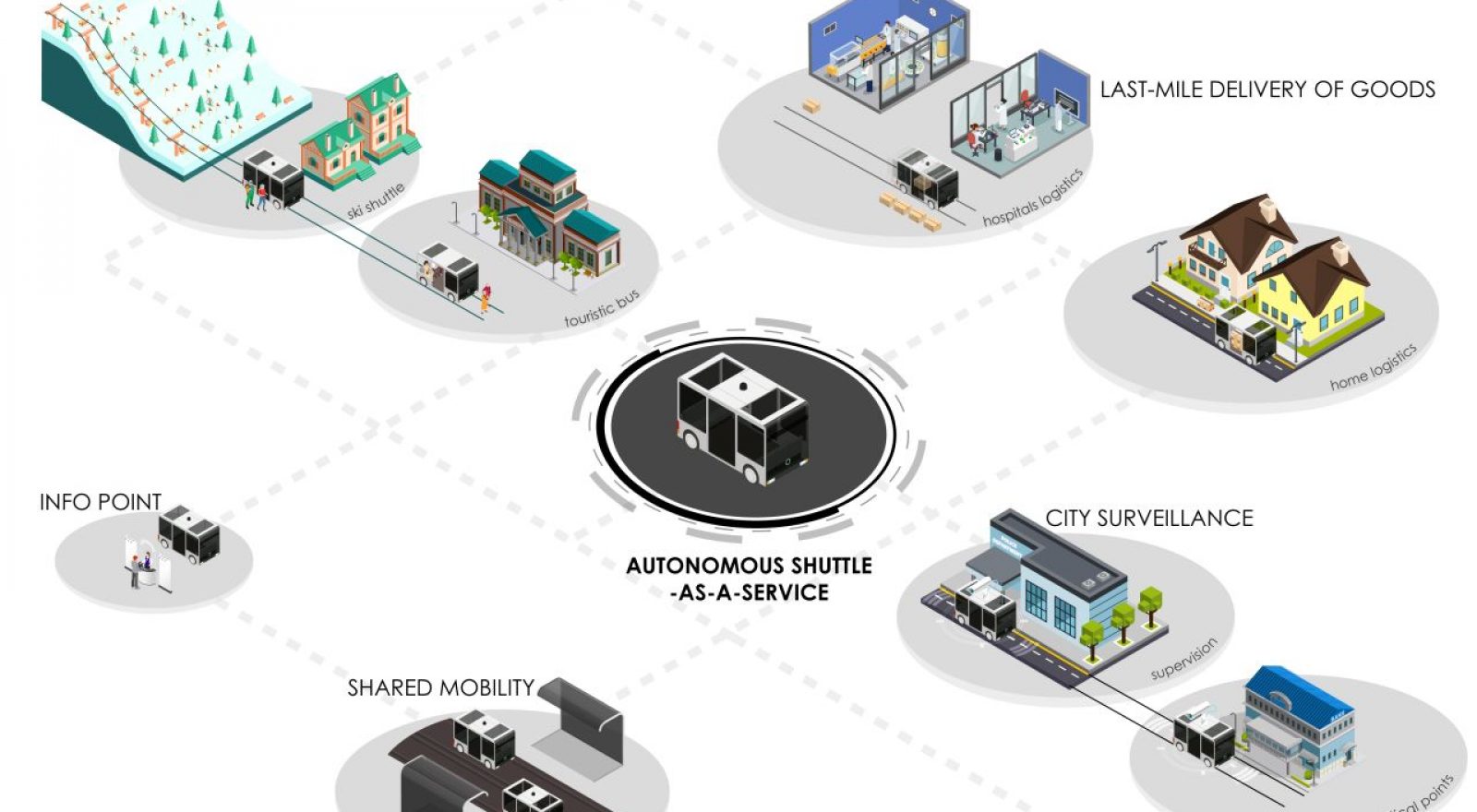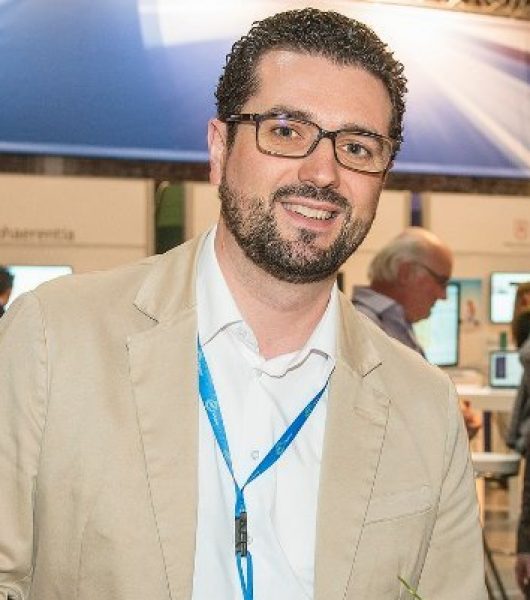New research paper on Autonomous Shuttles has been published on IEEE Transactions on Intelligent Transportation Systems journal
FBK contributes to the research with the proposition of the Autonomous Shuttles-as-a service (ASaaS) concept as a pillar for the realization of innovative and sustainable proximity mobility
Paper’s Title: Autonomous Shuttle-as-a-Service (ASaaS): Challenges, Opportunities, and Social Implications.
AUTHORS
- FBK: Antonio Bucchiarone, Sandro Battisti e Annapaola Marconi.
- I-Mobility Garage srl (Verona, Italy): Roberto Maldacea.
- Navya Tech (Lyon, France): Diego Cardona Ponce.
ABSTRACT
Providing mobility services effectively to residents and visitors is a complex socio-technical system task to city public managers. Smart mobility systems aim to support the efficient exploitation of city transport facilities and sustainable mobility within the urban environment. People need to travel quickly and conveniently between locations at different scales, ranging from a few blocks within a city to a journey across cities. At the same time, goods need to be timely delivered, considering both the users and the businesses’ needs. Several cities indicated an interest in using Autonomous Vehicles (AV) for the “last-mile” mobility services in the last few years. With them, it seems to be easier to get people and goods around using fewer vehicles. In this context, Autonomous Shuttles (AS) are beginning to be thought of as a new mobility/delivery service into the city center where narrow streets are not easily served by traditional buses. They allow them to perform critical areas with minimal new infrastructure and reduce noise and pollution. The article analyses the state-of-art on autonomous shuttles by proposing four application scenarios targeting the last-mile delivery of goods, the tourist experiences, and the shared and integrated mobility. Furthermore, we contribute with the proposition of the Autonomous Shuttles-as-a service (ASaaS) concept as the key pillar for the realization of innovative and sustainable proximity mobility. Our research proposed new research challenges for ASaaS, and we discuss social implications and governance challenges that consider user engagement and sustainability. It also recommended extending new research to focus on simulation and machine learning techniques for last-mile mobility planning and explore the journeys tracking certification via artificial intelligence and blockchain-based techniques.
FBK PARTNERS:
- NAVYA is a manufacturer of self-driving vehicles, a market leader in autonomous vehicles and in intelligent solutions for shared urban mobility. The company designs, produces and sells self-driving, electric and driverless vehicles. Founded in 2014, today with over 250 employees in France and the United States, NAVYA was the first company to market and provide autonomous mobility solutions. NAVYA occupies a strong position in the entire value chain of mobility solutions and combines robotics, digital technologies and automotive technology at the highest levels to design autonomous vehicles that do not require the presence of a driver on board. Navya’s activity focuses on mobility services that are facing the triple challenge of the urban transport ecosystem: economic, environmental and social, towards mobility that is no longer “personal” but “shared” and “this” mobility “service as a service “is part of fundamental trends such as the exponential development of cities and megalopolises, which induces a new economy of sharing and use, of which benefits are estimated that range from the reduction of pollution, to the decongestion of urban centers, to the reduction of energy consumption and maximizing road safety.
- I-Mobility Garage is a company specialized in the field of urban sustainable mobility, born from the incubation activity of NEV Mobility Europe, which since 2016 is engaged in the study and development, at European level, of the proximity urban mobility (first and last mile of people and goods). I-MBG has specific skills and know-how in the field of mobility management and electric vehicles and related technologies including driverless ones. He is distributor in Italy of the NAVYA brand, responsible for post-sales activities and driverless vehicle training and special projects. It is the owner of the franchise network named I-MBG in the country, aimed at creating the first network of workshops and sales points dedicated to proximity electric urban mobility for electric carriers from 1 to 4 wheels for the mobility of people, services in sharing , for public transport and transport of last mile goods (personal mover, bicycles, cargo bikes, scooters, quadricycles, UTVs and special vehicles).
This publication is part of the mutual collaboration aimed at digital innovation projects and experiments on the territory in the field of autonomous driving vehicles, for what concerns – among others – the smart sectors mobility, urban mobility, sustainable mobility, smart transportation, last mile delivery and smart community, with the ultimate goal of developing new skills, methodologies, technologies and platforms that enable digital transformation, as well as future synergies with public institutions, companies and startups.



